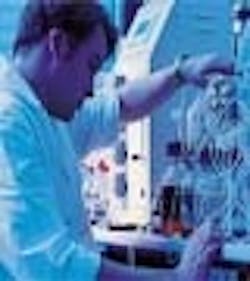How do you prepare a young person for employment in a GMP world? Theres no simple way. Universities and private training institutions are, finally, offering inventive programs to better prepare students and young professionals to not only get jobs, but to be competent in those jobs once they begin. (See Wanted: Good Bio and GMP Training below.)
I take the opportunity whenever I can in my chemical engineering courses to introduce students to the biotechnology industry, the FDA, and GMP. I ask how many have taken some type of medicine (pretty easy question). I then ask if theyve ever worried about whether the medicine was really safe and efficaciousnot many have. I then go on to explain that we all want medications we can depend on, but there are no guarantees.
Take, for example, an insulin-dependent diabetic who needs the same quality of insulin for the rest of their life. Thats a big challenge from the manufacturers point of view. It costs an average of $1.2 billion to bring that product to market. This cost represents all of the great science, testing and documentation needed to ensure the quality we demand of the product and the requirements of the FDA. I tell students that what separates the science performed at universities and that performed at a biotechnology company is the required emphasis on documentationand not just of the experiments themselves, but the validation of the equipment, methods and manufacturing process.
The next generation of pharma workers needs to have a sense of the scope of the challenge confronting manufacturers and their employees. One of the most important skills we can teach our students is how to properly succeed in a GMP/GLP environment. This is our goal at Nebraska-Lincoln. We hire both undergraduates and graduate students to work in our laboratories. On day one, they sit down with their supervisor, who presents them with all of the relavent SOPs to the lab. The students are expected to sign off that they have read and understood these SOPs. They also must go through chemical safety training. As they move into the laboratory, they are tutored on how to use an SOP to fill out a buffer prep log book (all buffers prepared for research are logged and given a lot number). Thus they must learn, through an SOP, how to use a balance, pH meter and conductivity meter. As the students research skills improve, they get involved in process scale-up activity and learn how to use tech transfer batch records. But this takes time, and occurs over a two- to three-year period.
The primary objective is to teach the student how to do research. The secondary objective is to ingrain into the student that research performed in a GLP/GMP environment is more efficient and in the long-term more effective. I am convinced this is the best way to initiate students into the ways of GMP, so that they are qualified for industry jobs as soon as theyre hired.
|
Wanted: Good Bio and GMP Training Universities and colleges provide outstanding opportunities and resources for students to learn about the bio side of science and engineering, which sets the foundation for their professional growth and long-term success in our industry. The higher education system has responded to the biotech industry by creating new bio- majors, such as bioengineering and biotechnology, and altering the names of established programs to include bio in the title. My department, like many others, recently changed its name from the Department of Chemical Engineering to the Department of Chemical and Biomolecular Engineering. Our core mission of training the next generation chemical engineer has not changed, but the name reflects our departments commitment to the biotechnology field, especially our graduate program. As an accredited program, our undergraduate curriculum is required to meet the stringencies of ABET, which is the recognized accreditor for college and university programs in applied science, computing, engineering and technology. Like other similar programs, our department/university offers elective courses in biochemical engineering, tissue engineering, industrial microbiology and bioseparations. We also encourage our undergraduate students to take life science courses such as biochemistry, microbiology, molecular biology and genetics. The challenge, especially in the engineering fields, is that curricula are filled to the brim and there is little room to take biotech electives. How do you then educate undergraduate students in the ways of cGMP? If you type in cGMP Training into your favorite search engine, you will find a number of commercial groups that provide this service. You will also find several universities that provide undergraduate programs in biomanufacturing or bioprocessing. Most notable is the recently built Biomanufacturing Training and Education Center at North Carolina State University. The BTEC offers a minor in Biomanufacturing in collaboration with academic departments or a B.S. in Chemical Engineering with a concentration in Biomanufacturing Sciences (http://www.engr.ncsu.edu/btec/programs.html). All of the core ChemE courses are present, including two courses that emphasize cGMP: cGMP Fermentation Operation and cGMP Downstream Operations. As you continue through the search results, youll find universities that offer specialized training short courses on GMP that are geared towards industry. These courses provide a great service to their states biotechnology industry. Another mechanism for GMP training of undergraduates is internship programs. This is a great mechanism for undergraduate students to gain on-the-job training. These relationships work both ways: It is an opportunity for the student to learn about GMP and a potential employer and for an employer to determine if they are interested in the student as an eventual employee. I strong encourage all undergraduate students to do a summer/semester internship. |
About the Author
Dr. Michael Meagher is the Donald F. and Mildred T. Othmer Distinguished Professor of Chemical and Biomolecular Engineering at the University of Nebraska-Lincoln. He is also the director of the UN-L Biological Process Development Facility.
